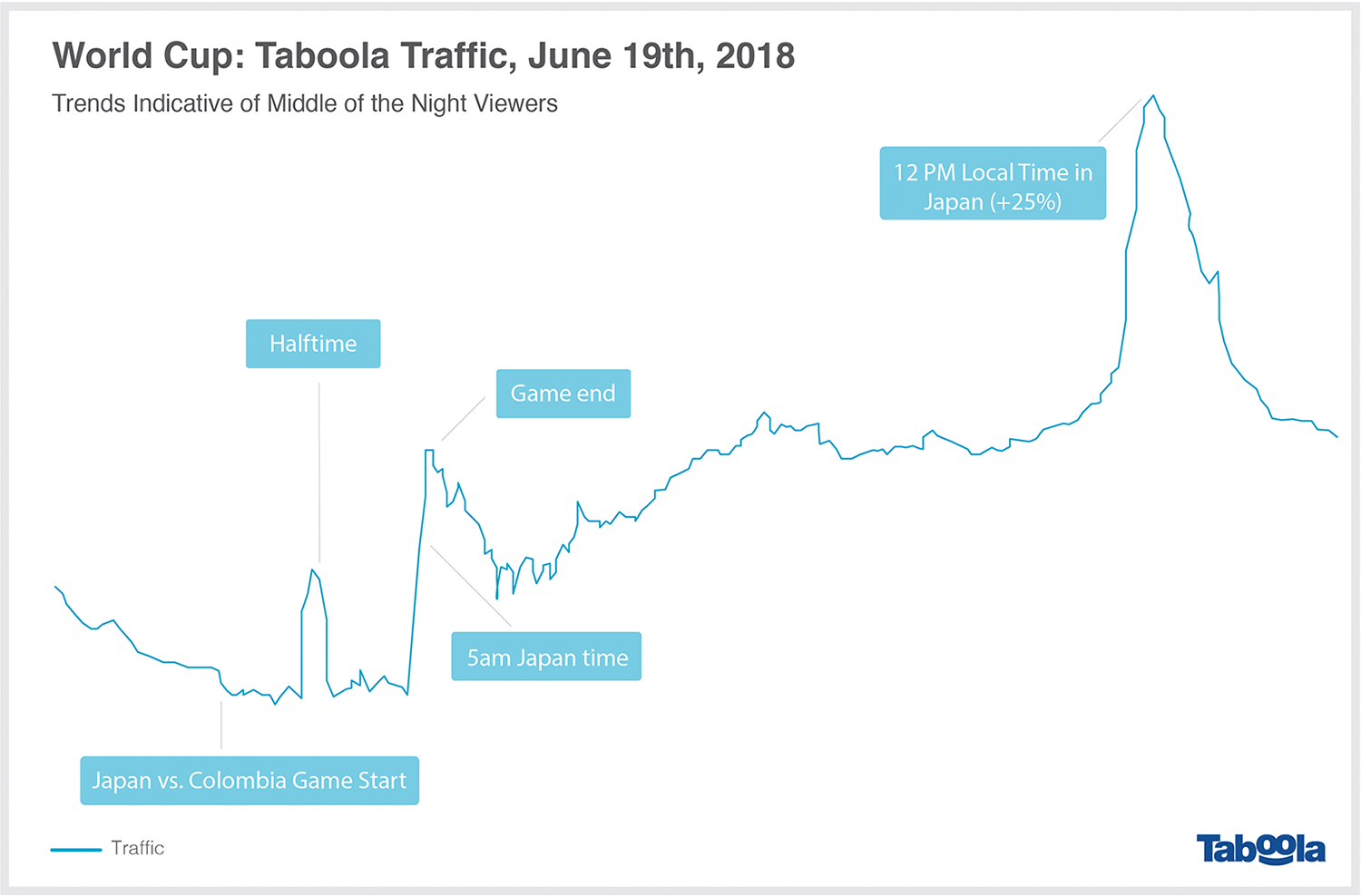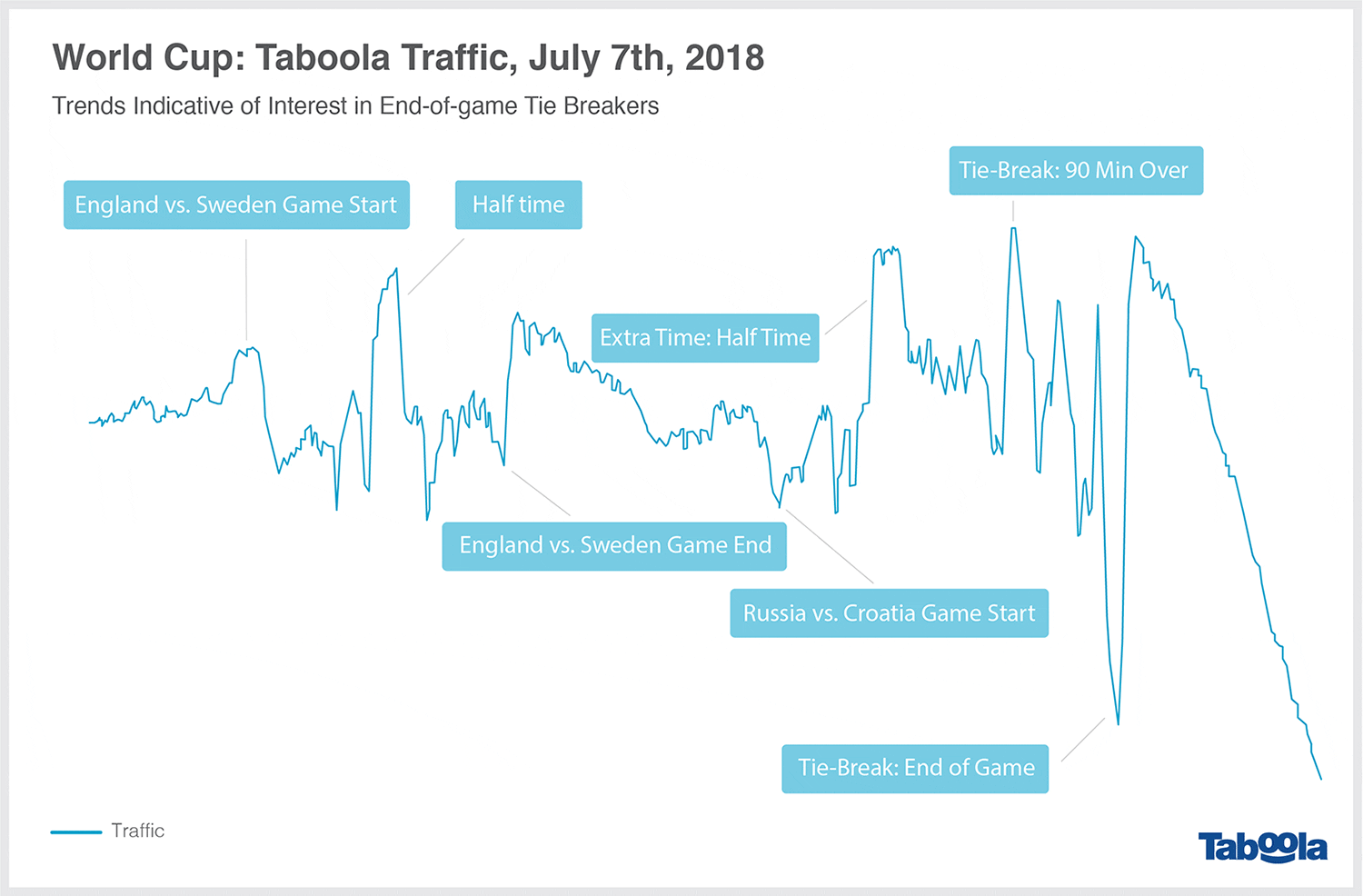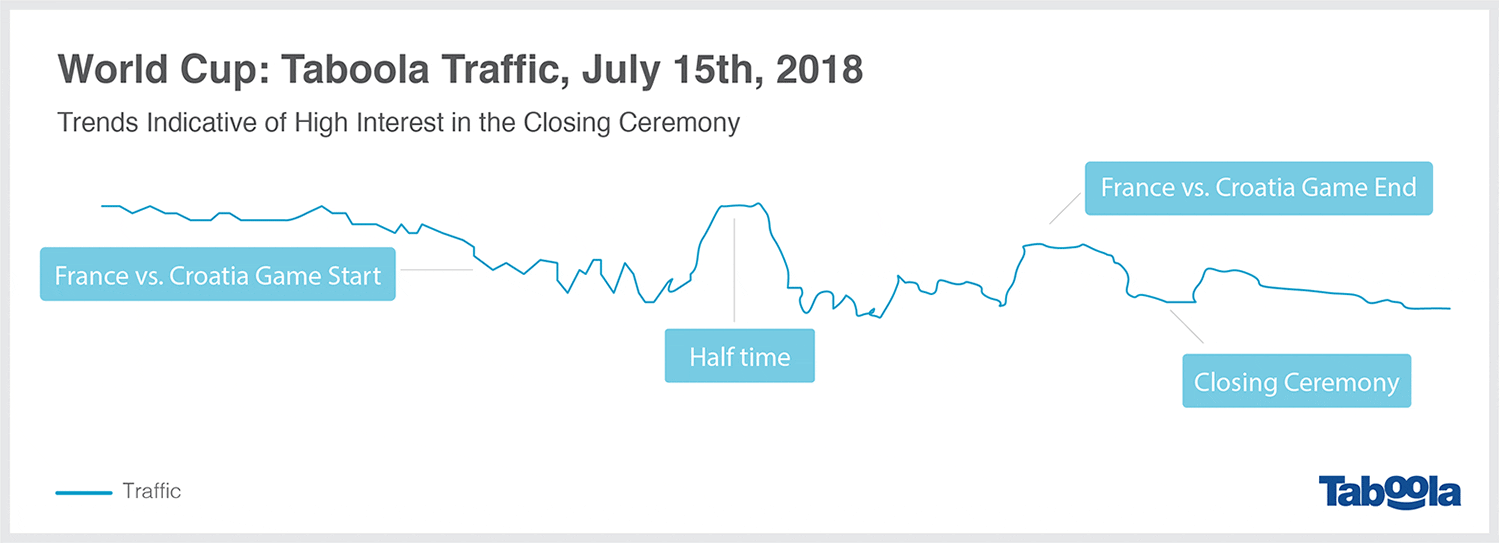The 2018 Russia World Cup has ended, and fans of France are celebrating their victory. As the games went on, we took a look at some of the impact that they had on internet traffic around the globe.
Our data reflects the level of global internet activity during the games in real time. Here’s how we predicted the World Cup would end.
There are few events that impact global internet traffic like the World Cup. People on the open web stopped what they were doing to look at content focused on the games to follow the progress of their favorite teams.
2022 Update: World Cup 2022 Predictions
World Cup fever kept people awake all night long.
Even regions that had to watch games in the middle of the night, such as APAC, stayed up to watch the game in real time. When teams from specific countries played, the post-game traffic spiked in that region.
Below, we saw a huge spike in traffic at 5 AM in Japan, right after they played Mexico on July 2nd, 2018.

Tie-breakers were the most interesting part of the game.
More people stopped to watch the tie-breaker at the end of the match than the entire game.
It’s the short drama that pulls in more people than the entire game, as shown below by the spike in traffic at the tie-breakers on July 7th—including England vs. Sweden and Russia vs. Croatia.

Finally, people left the web for the closing ceremony.
For the grand finale—the distributing of the cup itself—we saw a dip in internet traffic as people paused to watch the closing ceremony and the winning team receive its prize.

All the graphs shown represent requests to the Taboola network. Trend lines indicate requests for discovery on the open web.